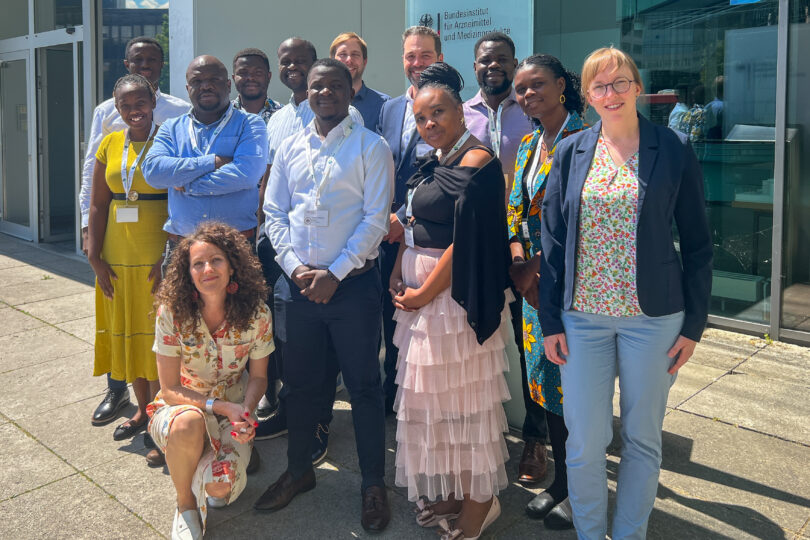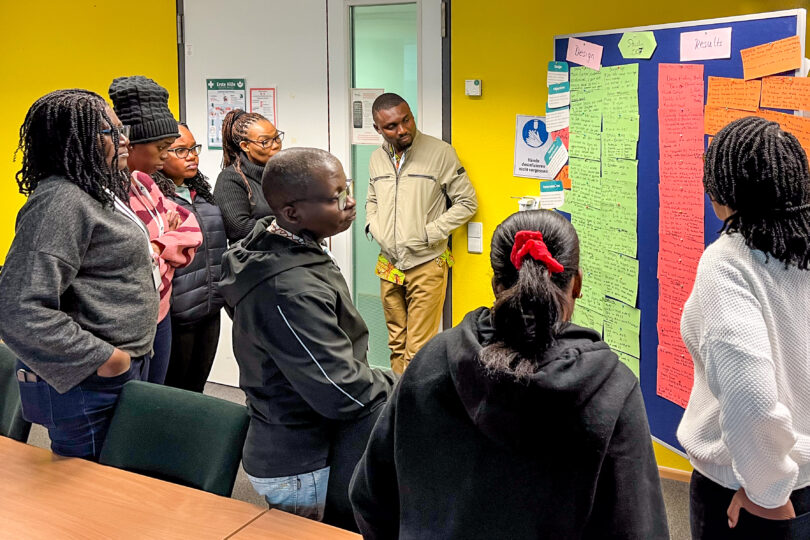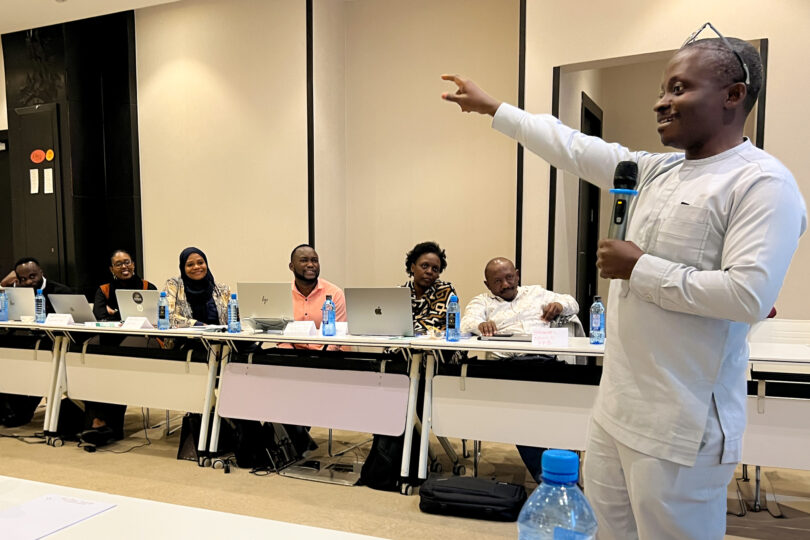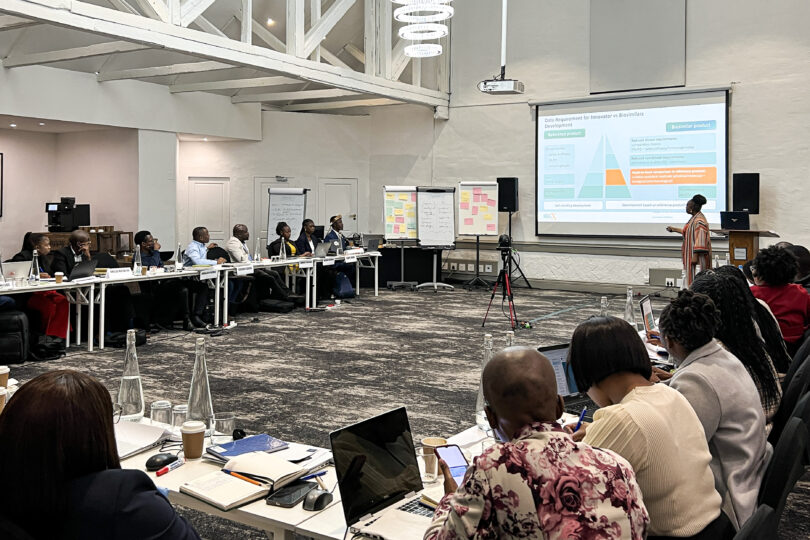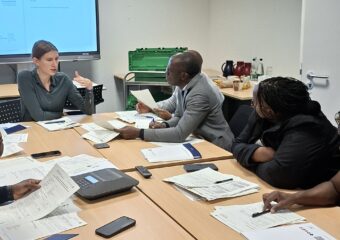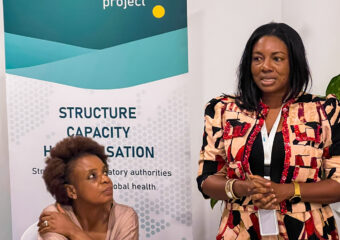From Learner to Enabler: South–South Cooperation Strengthens Regulatory Systems
In 2025, PharmTrain2 fellows from four African regulatory authorities become trainers in clinical assessment and biosimilar regulation, multiplying knowledge and capacity across the continent.
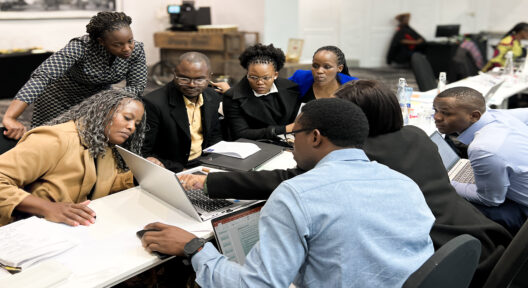
In many African countries, access to essential medicines depends heavily on their affordability. Hence, generic and biosimilar medicinal products play a key role. These products, typically less expensive due to reduced development costs, are vital to achieving equitable healthcare (High Interest in the PharmTrain2 Fellowship: A Tailor-made Contribution to the Drug Safety of Biosimilars in Africa). Yet, evaluating them for market approval requires specific regulatory expertise.
This is where PharmTrain2, a project under Germany’s Global Health Protection Programme, is making a difference. Within specialised train-the-trainer fellowships—since 2019 on clinical assessment of medicines, supplemented in 2023 by a fellowship on the evaluation of biosimilars— staff from the national medicines regulatory authorities of Ghana, South Africa, Tanzania, and Zimbabwe have been trained. Fellows participated in several hands-on workshops at the Federal Institute for Drugs and Medical Devices (BfArM), including specific didactic trainings. They co-developed training manuals for structured multiplication of their knowledge. After a first continental pilot on clinical assessment in late 2024 (From Trainees to Trainers: The Journey of the PharmTrain Fellows), this year marks the wider roll-out of the manual-based training.
Workshops in Germany: developing the training
The clinical fellows reunited in Bonn for a two-week workshop in February. The biosimilar group followed for a three-week stay in May. Each workshop had a dual focus: Fellows both deepened their regulatory skills and prepared for their future role as trainers. This also included refining the content and structure of their respective manuals. This combination of subject-matter expertise and didactic preparation laid the foundation for the regional training sessions that followed.
Regional roll-out: sharing knowledge across African countries
In February, clinical fellows from Ghana and Zimbabwe led a multi-country training on assessment of bioequivalence studies in Accra (Ghana), supported by PharmTrain2. In June, fellows held a second multi-country training on bioequivalence studies, hosted by the Pharmacy and Poisons Board Kenya, co-organised with PharmTrain2. Bioequivalence studies are the mainstay for marketing applications of generic medicines. These two one-week training workshops enabled regulators from 14 countries to strengthen their assessment skills, as documented by the pre-/post-training evaluations.
In July, biosimilar fellows seized their first chance to train outside their home agencies. In Johannesburg (South Africa), they held a five-day workshop on the evaluation of biosimilars. Organised in partnership with the Southern African Development Community Medicines Regulatory Harmonisation (SADC-MRH) programme, the training brought together participants from eleven countries. Through hands-on sessions and regional exchange, the workshop illustrates how peer-led training multiplies expertise across borders.
This shift—from learner to enabler—is at the heart of PharmTrain2’s impact. As in 2025, more than 60 assessors from 22 African countries have taken part in these regional training roll-out sessions. A further biosimilar workshop in another region is planned for later this year. But beyond the numbers, the project is creating something more enduring: A growing network of African regulatory experts training one another, adapting content regionally, and building capacity from within.
Through this model of South – South cooperation, PharmTrain2 is not only strengthening regulatory system, it is investing in people who are sustainably carrying that strength forward.

